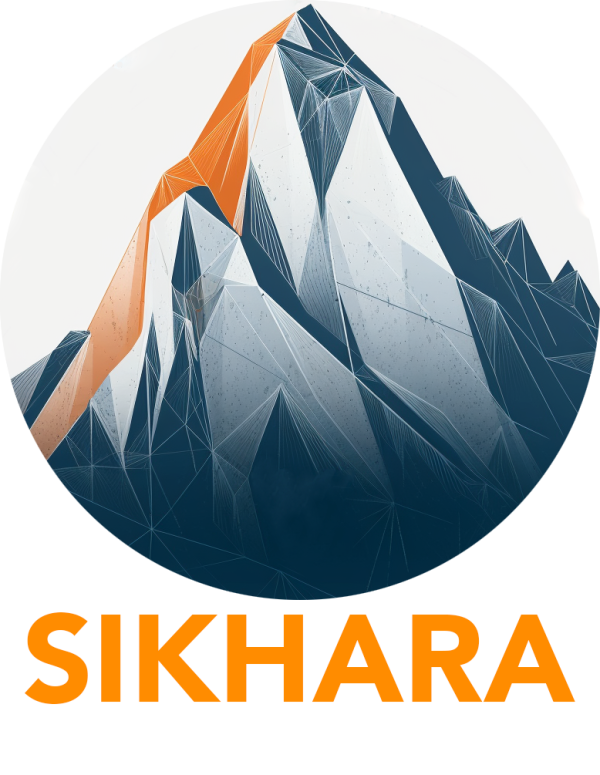
Multi-Agent Systems (MAS) have emerged as a fascinating subfield of artificial intelligence, focusing on the study and design of systems composed of multiple interacting intelligent agents. These agents can be software programs, robots, or even humans, working together to solve complex problems or achieve common goals. In this blog post, Sikhara will explore the fundamentals of multi-agent systems and how they apply to chatbots, one of the most popular applications of AI today.
What are Multi-Agent Systems? At its core, a multi-agent system consists of multiple autonomous agents that interact with each other within a shared environment. Each agent has its own goals, beliefs, and decision-making capabilities, and they must coordinate and cooperate to achieve their objectives effectively. The agents can communicate with each other, exchange information, and negotiate to reach agreements or resolve conflicts. Multi-agent systems provide a powerful framework for designing intelligent systems and solving complex problems.
The key characteristics of multi-agent systems include: Autonomy: Each agent operates independently and makes its own decisions based on its goals and the information available to it. Interaction: Agents interact with each other and the environment to achieve their objectives. Decentralization: There is no central control or global knowledge; instead, each agent has a local view of the system and acts based on its own perspective. Coordination: Agents must coordinate their actions to avoid conflicts and optimize their performance.
When is it necessary to use multiple agents?
Multiple agents become necessary when a problem or task is too complex for a single agent to handle effectively. In such systems, breaking down the problem into smaller, more manageable subtasks and assigning them to specialized agents can lead to more efficient and effective solutions. Additionally, when the environment is dynamic or uncertain, having multiple agents with different capabilities and knowledge can provide greater flexibility and adaptability. AI agents can also collaborate with human intelligence to solve problems that require both machine learning and human expertise.
Applications of Multi-Agent Systems in Chatbots Chatbots have become increasingly popular in recent years, providing a convenient and efficient way for users to interact with businesses, access information, and complete tasks. Multi-agent systems can play a crucial role in enhancing the capabilities and performance of chatbots. Here are some ways in which MAS can be applied to chatbots: Task Decomposition: Complex user queries can be broken down into smaller subtasks, each handled by a specialized agent. For example, in a travel chatbot, one agent could handle flight bookings, another could focus on hotel reservations, and a third could provide local recommendations. Collaborative Dialogue: Multiple agents can engage in a collaborative dialogue with the user, each contributing its expertise and knowledge to provide a more comprehensive and personalized response. This can lead to more natural and engaging conversations. Scalability and Robustness: By distributing the workload among multiple agents, chatbots can handle a larger volume of user requests and be more resilient to failures. If one agent goes down, others can take over its tasks, ensuring continuous service. Adaptive Learning: Agents can learn from their interactions with users and adapt their behavior accordingly. They can share their knowledge and experiences with other agents, enabling the entire system to improve over time.
MAS application in power engineering
Multi-agent systems have found significant applications in the field of power engineering. In this domain, MAS can be used for tasks such as power system monitoring, control, and optimization. Agents can represent various components of the power grid, such as generators, transformers, and loads, and work together to ensure stable and efficient operation of the system. MAS can also be employed for fault detection, isolation, and restoration, as well as for energy management and demand response. Artificial agents can be used to simulate and optimize power systems, leading to more reliable and sustainable energy solutions.
Adaption of MAS with power engineering categories
To effectively adapt multi-agent systems to power engineering categories, it is essential to consider the specific requirements and constraints of each category. For example, in power generation, agents can be designed to optimize the output of individual generators and coordinate their operation to meet the overall demand. In power transmission and distribution, agents can monitor the health of the network, detect and isolate faults, and reconfigure the system to maintain stability. In energy markets, agents can represent buyers, sellers, and regulators, and engage in negotiations and transactions to ensure fair and efficient trading of electricity. Multi-agent systems can also be applied to automated driving systems, where AI agents collaborate to ensure safe and efficient navigation.
Multi-agent systems offer a powerful framework for designing intelligent and collaborative systems, including chatbots. By leveraging the principles of autonomy, interaction, decentralization, and coordination, multiagent systems can enhance the capabilities and performance of chatbots, providing users with more personalized, efficient, and engaging experiences.
As the field of MAS continues to evolve, we can expect to see more innovative applications in chatbots and other domains. Researchers and practitioners are exploring new techniques for agent communication, coordination, and learning, pushing the boundaries of what is possible with multi-agent systems.
If you’re interested in learning more about multiagent systems and their applications in chatbots, there are many resources available, including academic papers, online courses, and open-source frameworks. By understanding the fundamentals of multiagent systems and how they can be applied to chatbots, you’ll be well-equipped to design and develop more advanced and intelligent conversational agents. Contact us today or visit our Marcom Chatbot at: https://www.sikharamarketing.com/marcom-chatbot/




